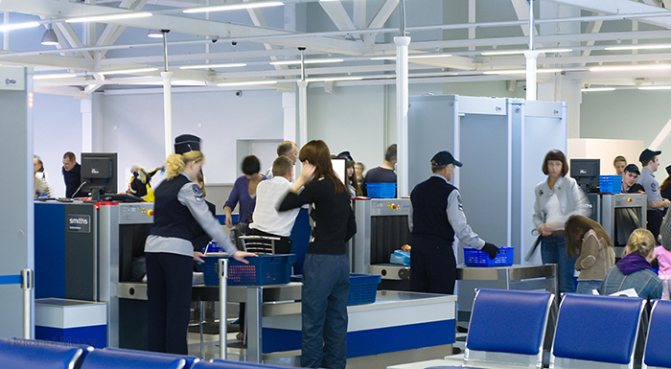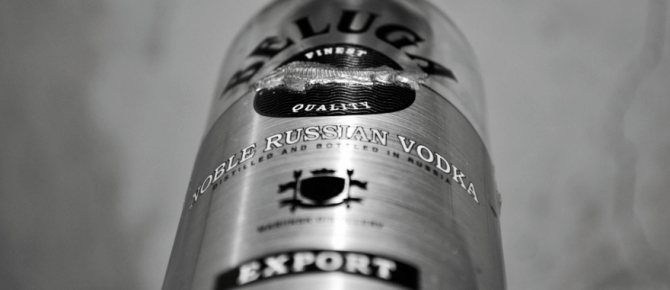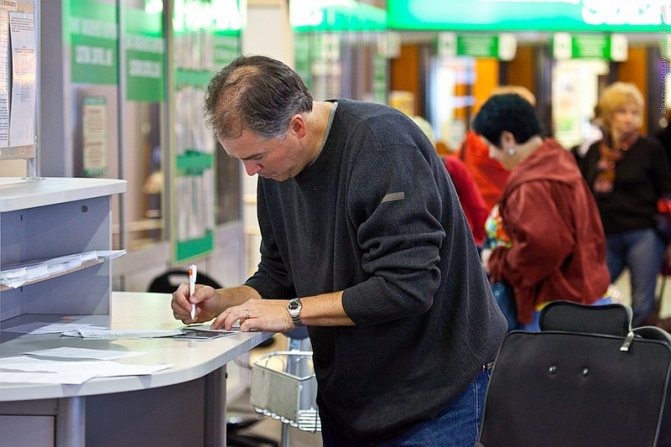If you do not know the rules by which alcohol is imported from abroad into Russia, a variety of unpleasant moments may arise at customs. In order to avoid them, you need to familiarize yourself with them in detail.
Our article provides detailed information regarding the issue of importing alcohol, how many liters of strong alcohol, wine or beer can be transported, what quantity is permissible and what fines you can receive for exceeding liters.
Who is allowed to import alcohol into the Russian Federation?
Any tourist over 18 years of age is allowed to carry alcohol.
When going to any country on vacation, the time spent there, as a rule, is always combined with shopping.
From abroad, many tourists take with them foreign alcohol as a souvenir, bottled in beautiful, sometimes very original, bottles.
This is permitted by the rules for any tourist over the age of 18.
Another thing is how much of it can be brought without any duties.
Some Russian tourists, having literally filled a whole backpack of alcohol, encounter certain troubles at customs.
They arise due to the fact that the maximum amount of alcoholic beverages allowed for export is exceeded.
Border guards may limit this quantity or prohibit it altogether. The customs service approaches this issue very scrupulously.
What to do in this case, is it really possible to say goodbye to a souvenir that will remind a tourist of the time spent in a particular country? Well, of course not.
Carrying alcohol is not prohibited, but not more than the amount established by customs rules.
How much alcohol can you bring into Russia?
People often ask how much alcohol can be imported into Russia?
The rules are very simple - no more than 3 liters are allowed to cross the border duty free.
It doesn’t matter what drinks: wine, strong alcohol, beer. Any alcohol-containing liquid intended for drinking should not exceed 3 liters in total. These rules even include the import of beer of any brand into Russia, so there is no particular point in maintaining it.
Non-alcoholic beer is not included in these rules, but there may be a situation where you will have to prove that it is non-alcoholic.

customs control
Attention! A maximum of 5 liters per person can be administered. Within these limits, transportation of drinks is completely free. But if you exceed 3 liters, you will have to pay a fee when crossing the border.
Import rules
It should be said that customs rules are not some kind of frozen document. They are subject to constant change.
At the time of writing this article, these rules were current for 2017. In order to keep abreast of all events, follow the ongoing changes and amendments to current documents.
These rules provide for the following provisions:
- For each entering adult, a limit of three liters is established, which he can transport to the territory of our country free of charge.
Any citizen over the age of 18 can bring alcohol into Russia. However, a certain amount of alcohol-containing liquids is not subject to duty. In this case, it does not matter at all what citizenship the person importing such products has. There is no distinction based on strength. This category includes any drink containing alcohol, regardless of strength.
- If the total amount of alcohol is more than 3 liters , but does not exceed 5 liters, then the amount exceeding the permitted limit is subject to additional payment. You will have to pay 10 euros for each liter exceeding the established norm. This situation is the same for everyone. Adjustments cannot be made to it depending on citizenship, route, type of transport, or other factors.
This applies to cases with weak alcohol and beer. If we are talking about vodka, then for each liter they will charge an additional payment of 22 euros.
It turns out that for each entering adult, a standard of three liters has been established, which he can transport to the territory of our country free of charge. For 2 liters in excess of the established norm, he will have to pay 20 euros.
Sometimes it may happen that the cost of the surcharge will exceed the amount paid for the product itself. To make a final decision, you should think about the advisability of your actions related to the import of surplus.
Anything that exceeds the established norm must be declared. In other words, this must be reflected in writing in the customs declaration. If there is no excess, then a written declaration is not required. It will be enough to verbally notify the customs officer who is conducting the inspection.
Such products must be accompanied by a receipt indicating exactly how much the person paid for the product. Always take receipts with you; they never hurt, and in some situations they may even be mandatory.
The customs officer will prohibit the carriage of items that cost more than 300 euros. But for those traveling by sea or air, there is an exception. The cost of the things he carries should not exceed 430 euros.
The product must be intended for personal use or be given the role of a gift. It is prohibited to use transported alcohol for commercial purposes.
How much alcohol can you import/export to different countries?
From a trip abroad, you always want to bring back not only souvenirs, but also something significant. For example, high-quality local alcohol and Duty Free products. But it is not always possible to import or export to any country as much as you want. This article discusses all popular tourist destinations and the regulations governing the import and export of alcoholic beverages in these countries.
When importing and exporting alcohol from the country, you need to navigate:
- Restrictions imposed by the air carrier on baggage and hand luggage (if traveling by plane).
- To local customs regulations and legislation. Particular attention should be paid to this point, since customs restrictions on the import and export of alcohol can vary greatly in different countries.

Russia
You can bring 3 liters of strong alcohol or beer into the country duty-free for each adult person. Another 2 liters can be imported with a fee of 10 euros per liter. It turns out that you can import 5 liters in total , and the total cost of drinks should not be more than 1,500 euros.
You can export as much alcohol as you like from Russia: the main thing is that customs does not consider the alcohol to be a commercial shipment - this may result in criminal penalties. Therefore, when calculating the alcoholic beverages that can be brought home from all over the world, you should always focus on the maximum quantity of 5 liters.

Türkiye
Turkish customs allows tourists to import 5 liters of low-strength alcohol (up to 22 degrees strength), or 1 liter of spirits, as well as up to 20 packs of cigarettes or 50 cigars.
There is no need to exceed this amount - alcohol in Turkey is inexpensive. There are no restrictions regarding the export of alcohol from the country, but it is worth remembering the maximum 5 liters of alcohol imported into the Russian Federation - border guards will be forced to take away the rest.

Belarus
On the territory of the Republic of Belarus, the same customs regulations for the import and export of alcohol apply as in Russia. Every adult citizen can bring 3 liters of alcohol into the country duty-free; for another 2 liters you will have to pay 10 euros per liter.
Maximum total quantity for import: 5 liters per adult with a fee of 20 euros. There is no standard for the strength of alcoholic beverages.

Thailand
You can import up to 1 liter of drink per adult into the country without duty, but the ban does not apply to alcohol from Duty Free. 3 from Thailand (again, without restrictions in DutyFree).
For violating customs legislation, a fairly large fine can be imposed (about $1000), but in reality, customs do not look too closely at alcoholic beverages. You can easily find hundreds of messages on the Internet that the import and export of alcohol in Thailand for tourists is very poorly regulated, and they turn a blind eye to exceeding the limits. To take risks or not - let everyone decide for themselves.

Finland
Drinks with an alcohol content of up to 22% can be imported into Finland from the age of 18. Customs will only allow stronger alcohol with travelers 20 years of age and older. When exporting alcohol, you should be guided by the customs legislation of the country where these drinks are planned to be imported (for the Russian Federation, the limit is 5 liters). The following quantities of alcoholic beverages are allowed to be imported:
- 16 liters of beer;
- Or 4 liters of wine;
- Or 1 liter of strong alcohol (22 degrees or more);
- Or 2 liters of other alcoholic beverages (including sparkling wines and champagne).
Alcohol within this quantity is not subject to customs duties. Drinks can be combined: for example, a liter of champagne and 0.5 strong alcohol will fit into the limit. In order to import alcoholic beverages into the country, the total duration of stay in Finland must be at least 72 hours (for those living in Finland, this period is reduced to 20 hours). This rule applies not only to drinks you brought with you, but also to purchases from DutyFree.
In case of violation, you must pay a fine in the form of double the cost of alcohol. For example, if 1 liter of declared vodka costs 32 euros, then if another liter is discovered you will have to pay a fine of 64 euros.

UAE - United Arab Emirates
With the UAE, everything is much more complicated than with most countries: each emirate has its own rules for the import of alcohol. This is logical: all emirates are autonomous, have their own monarch and are essentially separate states.
In emirates that are attractive to tourists, the following restrictions apply:
- Abu Dhabi and Fujairah can bring in up to 4 alcoholic drinks of any kind per non-Muslim.
- To Dubai – 24 cans of beer or up to 4 liters of any other alcoholic beverages.
- In Sharjah - up to 2 liters of alcoholic beverages and 1 pack of beer.

Export of alcohol from Europe (European Union)
For member countries of the European Union, uniform standards for the export of alcohol (customs regulations) apply. These standards apply to 28 countries: Austria, Belgium, Bulgaria, Great Britain, Hungary, Germany, Greece, Denmark, Ireland, Spain, Italy, Cyprus, Latvia, Lithuania, Luxembourg, Malta, the Netherlands, Poland, Portugal, Romania, Slovakia, Slovenia , Finland, France, Croatia, Czech Republic, Sweden and Estonia.
There are also some import restrictions in the EU countries: 16 liters of beer, 4 liters of wine, 2 liters of alcohol up to 22% and 1 liter of spirits.
The following quantities of alcohol can be exported from these countries without duties and for personal consumption:
- Up to 110 liters of beer and beer drinks;
- Up to 90 liters of wine, of which up to 60 liters can be sparkling wines;
- Up to 10 liters of strong alcohol (with a degree above 22%);
- Up to 20 liters of drinks with an alcohol content of less than 22%, not listed above.
It should be understood that the ability to export such a quantity of alcohol from European countries does not mean that customs in the country of arrival will let you through with all this stuff. Even if you purchase dozens of liters of alcohol in any of these countries, more than 5 liters per person will still not be allowed into Russia.

Restrictions on the import of alcohol in other countries
- Poland - you can bring with you 16 liters of beer, 4 liters of wine (not champagne), 2 liters of low-alcohol drinks (up to 22%), 1 liter of strong alcohol. You can transport/export up to the restrictions from the previous paragraph.
- Tunisia - you are allowed to import into the country 2 liters of alcohol with a strength of up to 25% or 1 liter of alcohol with a strength of 25%.
- Ukraine - every adult can import 1 liter of vodka, 2 liters of wine or 5 liters of beer.
- Estonia - 16 liters of beer, 4 - wine, 2 liters of alcohol up to 22% and 1 liter of spirits.
- Kazakhstan - customs regulations are similar to the Russian Federation: 3 liters of alcohol for an adult + two additional liters with a duty of 10 euros per liter.
- Lithuania - the country allows the import of 1 liter of strong alcohol or dessert wines, 2 liters of table wines or 4 liters of beer.
- Israel - customs in Israel will allow adult citizens who decide to bring 1 liter of strong alcoholic beverages or 2 liters of wine into the country without duty.
- Georgia - customs rules allow the import of no more than 4 liters of any alcoholic beverages into Georgia.
- Armenia - you can bring no more than 2 liters of any alcohol into the country.
- Vietnam - one adult (over 18 years old) can bring 3 liters of beer, 2 liters of alcohol up to 22% and 1 liter of spirits over 22%.
- China - China has a duty-free import limit of 1.5 liters of alcohol per adult.
- India - it is allowed to import up to 2 liters of any alcoholic beverages through customs.
- Egypt - no more than 1 liter of alcohol, regardless of strength.
- Bali - up to 2 liters of any alcoholic beverages per adult.
USA
The United States has uniform customs rules that rarely differ from state to state (unlike the emirates in the UAE), but it is still advisable to clarify local domestic legislation. When it comes to importing alcohol, the customs rules of America are very different from other countries due to the fact that you can only transport alcohol here if you are 21 years old and not 18.
The limit on the import of alcohol is very small: up to 1 liter of alcoholic beverages, regardless of strength. That is, at least 2 half-liter bottles of whiskey, at least 2 bottles of beer of the same volume. When it comes to tobacco products, American customs officers are more loyal: you can bring in 50 cigars, up to 2 kilograms of chewing tobacco, or 200 cigarettes (block). If the limit on the import of alcohol is exceeded, the remaining volume will have to pay customs duty. Fines and other penalties are also possible - limit it to 1 liter or check state laws.

Responsibility for violations of the rules
The violator may be subject to a fine of 50-200% of the value of the goods, which is not included in the declaration
The rules prohibit carrying more than 5 liters of alcoholic beverages.
Those who violate this provision are subject to administrative liability.
In order to find out what specific punishment faces for this, you should look at the Code of Administrative Offences.
There is Article 16.2, according to which the violator may be subject to a fine of 50-200% of the value of the goods, which is not included in the declaration.
Additional (optional) punishment provides for confiscation of goods. Customs officials, as a rule, follow this path.
In this case, the rule providing for permission to transport up to three liters simply ceases to work. After all, if a violation is established, customs officers will confiscate (confiscate) the entire product.
As for an individual, the rules here are more loyal and lenient than those applied to organizations. Those who live directly on the border or very close to it are especially lucky.
The fact is that the law does not regulate the number of times that you can cross the border during the day. In fact, this can be done indefinitely, at least as long as the clock allows. But the capabilities of the customs service should not be underestimated either.
If an individual buys alcoholic beverages several times within one day and transports them across the border, then he will certainly be suspected of carrying out any commercial transactions. Such a person will certainly be subject to penalties.
Therefore, be sure to review the existing regulations. Knowing and following them will help you avoid unpleasant situations. The declaration form can be obtained at any land customs point. It is filled out in duplicate.
One remains with the person crossing the border, and the other is handed over to the customs representative. It reflects information about passport data, registration address and actual residence. In addition to indicating the quantity of alcoholic beverages, their total cost is also reflected.
How to transport alcohol across the border correctly
How much currency can you export from Russia?
If you are bringing alcoholic beverages, you are required to declare them. But up to 3 liters this can be done orally. Those. It is enough to tell the customs officer that you are carrying alcohol within the normal limits. He may or may not check the luggage, limiting himself to viewing the contents of the suitcases through a scanner.
This allows you to use the green corridor at the checkpoint.

Filling out the declaration
If there is more than 3 liters of alcohol, then the import of alcohol into Russia requires filling out a declaration in writing and paying a duty of 10 euros for each liter over 3.
For example, you are carrying 5 liter bottles of cognac. You will have to pay 20 euros. This is the maximum, because everything that exceeds the norm of 5 liters will be confiscated, so the norm for how much alcohol can be imported into Russia cannot be exceeded.
Also, containers for drinks (glass and plastic bottles, bags) must have easily readable markings, which must indicate the name of the drink, its place of origin, and the main composition. You cannot transport alcohol across the border in unmarked containers. It is advisable to keep receipts for purchasing goods. In case of any problems with packaging, you can always present a receipt to customs officers; usually, having an official document allows you to quickly resolve misunderstandings.
Therefore, do not bring wine to Russia on tap in clean bottles or cans at farms, wine or beer festivals. You can only consume such drinks on the spot. Customs will not let them through.
Pickup from Duty Free stores
Such stores exist at airports and seaports.
They sell all kinds of goods there that are not subject to duty. Naturally, they are cheaper there.
You can buy anything and as much as you want there. But this does not mean at all that the same amount of the same alcohol can be taken with you across the border.
The customs officer is not at all interested in where it was purchased, in a Duty Free store or a wine supermarket.
The main thing is the amount that the person crossing the border carries with him. The same rule applies here. If you are carrying more than three liters of alcohol, please pay the fee.
Thailand
If you are bringing personal items into Thailand worth more than 10,000 baht (about US$300) per person, you must declare them and pay duty upon arrival at the airport. However, this rule is often ignored by both travelers and local customs officers. However, if the total value of the imported items is more than 80,000 baht, they may be seized from you and placed in a warehouse for further customs clearance procedures. It is allowed to import up to 1 liter into Thailand. alcoholic beverages and 200 cigarettes or 250 grams of cigars (or smoking tobacco) per person.
Export from the countries of the customs union
A number of states located on the territory of the post-Soviet space have concluded an agreement to form a Customs Union.
It is a confederal association whose purpose is to simplify the procedure for the import and export of various goods. Today it consists of 5 states.
Within the framework of this union, you can transport any goods that are legal in nature and not pay customs duties. It is much easier to transport goods from these countries than, say, from Italy.
In terms of quantity, imported goods “for yourself” are comparable to wholesale quantities. The existence of such a gap allows dishonest businessmen to receive excess profits. The point is different excise rates on alcoholic beverages in different countries.
For example, in our country they are much higher than in Kazakhstan. Naturally, the same vodka costs much cheaper there. Analytical data indicate that the majority of alcoholic beverages were not produced in Kazakhstan itself, but were delivered from China.
How many liters of alcohol can be exported from Armenia?
16.2 of the Code of Administrative Offenses of the Russian Federation, namely, non-declaration of goods subject to written declaration.
It is prohibited to import and export: - antiques, including precious stones, coins, manuscripts and other works of art, without permission from the relevant authorities.
Alcohol products, in terms of exceeding the import norm without paying customs duties, were seized according to the seizure protocol. every day of stay in this warehouse of seized alcohol is paid (quite expensively, I don’t remember the figure) by the violating passenger. I personally imported 21 bottles of cognac, 0.7 and 1 liter in volume. It all depends on the customs officers on the territory of the Russian Federation.
They let me through, but the girl who was bringing in 4 bottles was forced to “hand over the containers.”
I fly often and already know which customs officer to approach.
We met with friends over the weekend, one of them has worked at customs for many years.
he said that they are now strengthening. emphasis on alcohol. especially to those destinations from which they often carry: Armenia, Cuba, Dominican Republic.
again, a plan for the protocols that needs to be done. The 4th liter of alcohol and all subsequent ones threaten to draw up a Protocol
How to fill out a declaration?
Customs officers will require the provision of receipts that were issued upon purchase of products
In order to avoid unnecessary problems, correctly calculate the amount of alcoholic beverages that you plan to take with you when crossing the border and fill out the customs declaration.
You can request the form at the customs counter. Its location is the perimeter of the red corridor. Checkpoint.
If the need arises, a border guard officer will help fill it out. The form must be filled out in duplicate.
Customs officers will require the provision of receipts that were issued upon purchase of products. They will be used to reconcile the actual value. You must put a date at the bottom of the document and sign it.
A warrant may arise when a foreigner breaks the rules. In principle, the responsibility for him is the same as for a Russian citizen, but, as a rule, customs officers limit themselves to only an explanatory conversation.
If a foreigner does not have the funds to pay the duty, the goods will be sent to a temporary storage warehouse. Once he pays the duty fee, he can pick it up. We should not forget that you will also have to pay for storage, since this is a paid procedure.
Do I need to indicate alcohol in the declaration?
There are 2 corridors at the control: “red” and “green”. Citizens who do not have goods that are subject to declaration pass through the “green” lane. In case of “red”, it is necessary to provide the inspection authorities with the appropriate document, which shows the excess of the duty-free quantity.
When entering an Asian republic the following are subject to mandatory declaration:
- Cash in any currency exceeding the equivalent of $5,000. Restrictions do not apply to bank cards.
- Jewelry totaling $15,000.
- Securities.
- Electronics, equipment in quantity exceeding established standards.
Be sure to read: What currency to take with you to Turkey - dollars, euros or rubles and how much money to take if everything is included?
Alcohol-containing drinks and tobacco products are not subject to written registration. Cognac and wine must be in the luggage of adult travelers. Excesses will be confiscated.
Import of other goods
Customs duties will not be charged if the total amount of all transported goods does not exceed a total of 1,500 euros
Customs duties will not be charged if the total amount of all transported goods does not exceed 1,500 euros in total.
This applies to ground transport. If air transport is used for transportation, it increases to 10,000 euros.
In this case, the total weight of goods should not exceed 50 kg.
Sometimes the amount and weight may exceed established limits.
If the cost is not more than 650,000 euros, and the weight is 200 kg, then the duty is 30% of the cost, but not less than 4 euros per 1 kg.
If items of the same type are transported (for example, several pairs of shoes), then this can be equated to a consignment of goods intended for commercial purposes. In this case, the bet size is slightly different.
There are exceptions to the rules:
- Voluntary migrants who fall under the state program. Members of their families are considered equal to them. They can transport used items without any restrictions. They are not subject to duty. The benefit is provided once, when the migrant enters the country for the first time.
- Refugees and forced migrants. They can do as many things as they want for free. The status must be documented.
- If a Russian has lived abroad for more than 6 months. In this case, he can transport as many things as he likes without being subject to duty. There are no restrictions on weight or cost.
Transportation by individuals is prohibited for certain goods:
- Products that do not have factory packaging (purchased on the market).
- Potato.
- Seeds (for example, tulips from Holland).
EU: Czech Republic, Finland, Germany and others
Entry regulations into the EU may differ for those traveling by air and sea compared to those traveling by land. For example, air passengers can import up to 200 cigarettes, up to 100 cigarillos or up to 50 cigars, while road travelers are allowed to import only 40 cigarettes, 20 cigarillos or 10 cigars, respectively.
It should be taken into account that these norms do not make it possible to import, for example, 200 cigarettes and 50 cigars at the same time - since customs officers apply the combination rule to them. For example, 100 cigarettes is 50% of the limit of 200 cigarettes for an airline passenger, and you can additionally add 25 cigars, which is 50% of 50 cigars. The situation is similar with alcoholic drinks. It is allowed to import up to 4 liters of wine and up to 16 liters of beer, and in addition 2 liters of alcoholic beverages with an alcohol content of less than 22% (including sparkling wine, liqueur wine) or 1 liter of strong alcoholic drinks (with an alcohol content of over 22%) - but according to the rule of combination. For example, 1.5 liters of an alcoholic drink with an alcohol content of up to 22% is 75% of 2 liters, to this you can additionally add 0.25 liters of a strong alcoholic drink with an alcohol content of over 22%, which is 25% of 1 liter.
United Arab Emirates
The import of home-cooked food is prohibited in the UAE, and duty-free import of goods for personal use is only possible with a total value of up to 3,000 dirhams per person. The second important restriction is related to the import of alcoholic beverages. Import rules vary slightly from one emirate to another; in Dubai, duty-free import of up to 2 liters of spirits or 2 liters of wine per adult is allowed, but only if he does not belong to Islam. The import of alcohol is strictly prohibited for Muslims. Passengers over 18 years of age are allowed duty-free import of 400 cigarettes or 50 cigars or 500 g of tobacco.









